As previously discussed here, I am sometimes using this approach to execute Services internally:
IMessage theMessage = new Message<Startup>(new Startup());
var reply = HostContext.AppHost.ExecuteMessage(theMessage); // The way to get the pipeline to execute when we do internal call, and get DI to work etc
This works well and as expected, except in one case: when I call this from the OnAfterInit method, that I override.
The idea is that I want to do some startup-stuff when the AppHost is ready, after initialization, but when doing this, it fails with a NullReferenceException:
public override void OnAfterInit()
{
base.OnAfterInit();
IMessage theMessage = new Message<Startup>(new Startup());
var reply = HostContext.AppHost.ExecuteMessage(theMessage);
}
Error:
at ServiceStack.ServiceStackHost.<ApplyRequestConvertersAsync>d__361.MoveNext() in C:\BuildAgent\work\3481147c480f4a2f\src\ServiceStack\ServiceStackHost.Runtime.cs:line 45
at System.Runtime.ExceptionServices.ExceptionDispatchInfo.Throw()
at System.Runtime.CompilerServices.TaskAwaiter.ThrowForNonSuccess(Task task)
at System.Runtime.CompilerServices.TaskAwaiter.HandleNonSuccessAndDebuggerNotification(Task task)
at System.Runtime.CompilerServices.TaskAwaiter`1.GetResult()
at ServiceStack.Host.ServiceController.ExecuteMessage(IMessage dto, IRequest req) in C:\BuildAgent\work\3481147c480f4a2f\src\ServiceStack\Host\ServiceController.cs:line 584
at ServiceStack.ServiceStackHost.ExecuteMessage(IMessage mqMessage) in C:\BuildAgent\work\3481147c480f4a2f\src\ServiceStack\ServiceStackHost.cs:line 1486
at Test.Test.OnAfterInit() in C:\Git\Test\Test.cs:line 59
It seems that not all is initialized and ready. If I do this, it works:
public override void OnAfterInit()
{
base.OnAfterInit();
System.Threading.Timer t = new System.Threading.Timer((o) =>
{
IMessage theMessage = new Message<Startup>(new Startup());
var reply = HostContext.AppHost.ExecuteMessage(theMessage);
}, null, 100, int.MaxValue);
}
I would appreciate to know if I am missing something, and if there is a nicer way to resolve this. The Timer-thing works, but it doesn't sit right with me.
